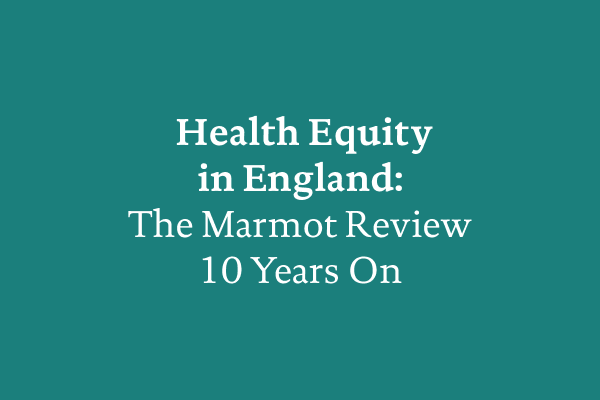
Published in 2010, The Marmot Review was a landmark study of health inequalities in England. The report stated unequivocally that the fundamental causes of health inequalities were political (unequal policies and wealth) and environmental impacts (work, learning, access to services, housing etc.).
The work was an important moment, building on similar findings in the UK and worldwide over previous decades.
Later this month, the UCL Institute of Health Equity (IHE) and The Health Foundation will publish a new report on the ten-year anniversary of the original review to examine how health inequalities have changed and what progress has been made on tackling the social determinants of health.
The review, led by Professor Sir Michael Marmot, will examine the overarching issue of widening health inequalities and analyse some of the key social determinants of health, focusing on: early years and education; work and income; and housing, places and communities. It will also recommend practical proposals for action at national, regional and local level.
The Trust is working closely with IHE and we are delighted that a number of projects funded by the Trust will be featured in the report as examples of the positive action in tackling health inequalities over the past ten years.
These case studies demonstrate the importance of resident-led approaches and the role of social connections, and individual and collective control as foundations to good health. There are some important examples of how people can use their collective power, knowledge and experience to influence change locally.
John Hume, Chief Executive of the Trust, will be speaking at the report launch and said:
“We’re delighted that projects we fund will be included in this hugely important report. While there has been progress in some areas since the Marmot Review was published, there is growing evidence that health inequalities are widening and life expectancy is stalling.
Differences in life expectancy are a very serious piece of social injustice and are fuelled, to a significant extent by differences in wealth and the conditions into which people are born and live.
We need a concerted effort, including brave policies and strong, cross-sector partnerships which place local people at the heart of decisions which affect them.”
The report will be published on Tuesday 25 February, so look out for updates on social media and in our next newsletter. For more information visit the IHE website.
